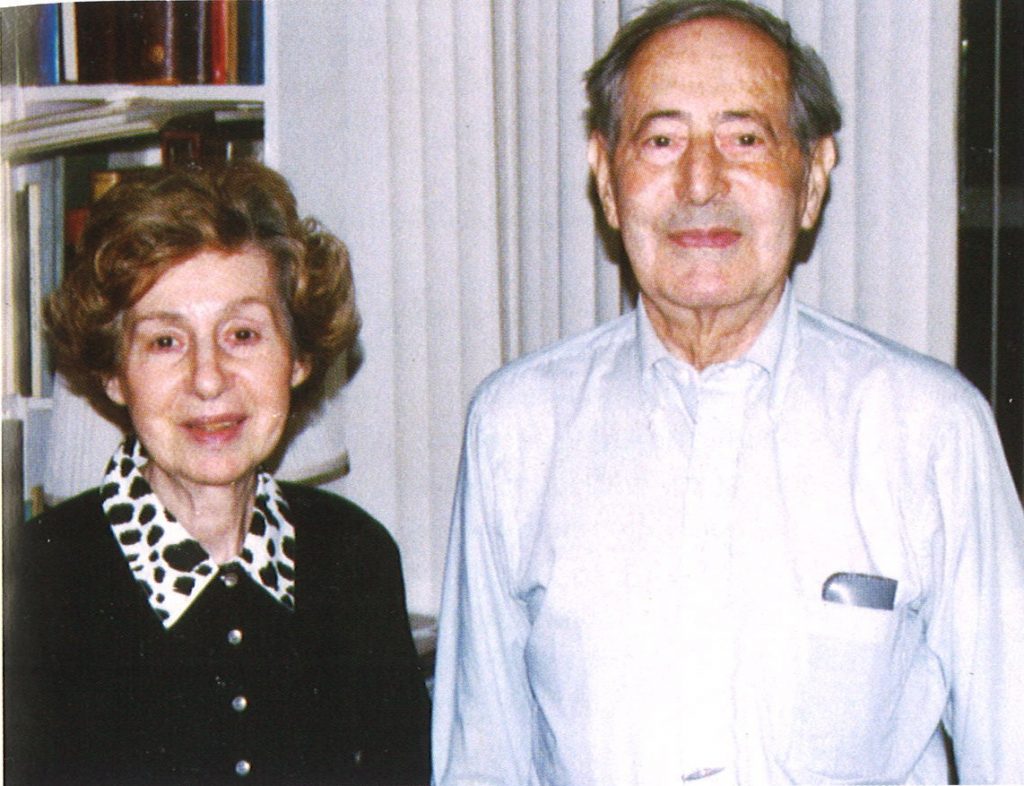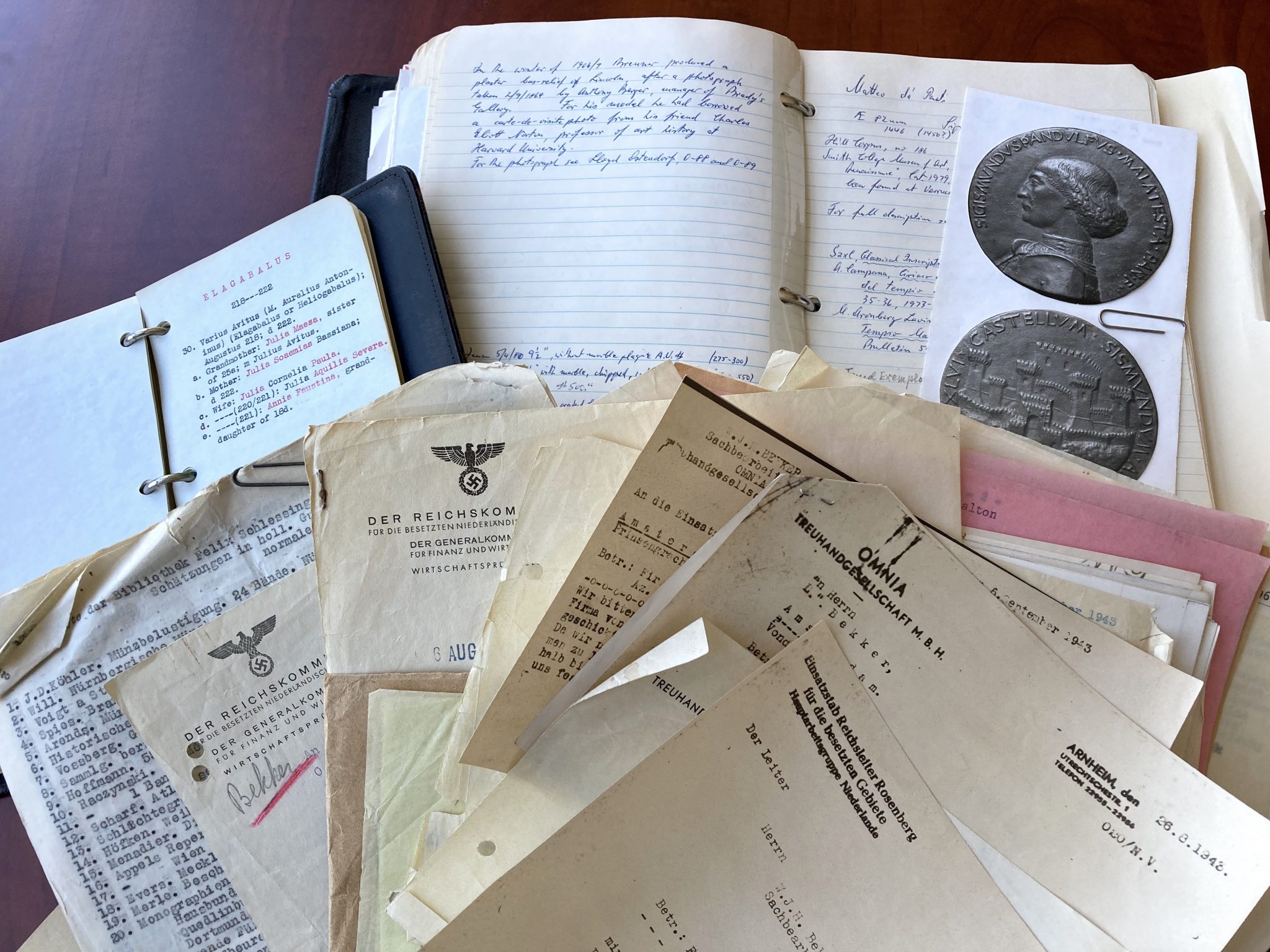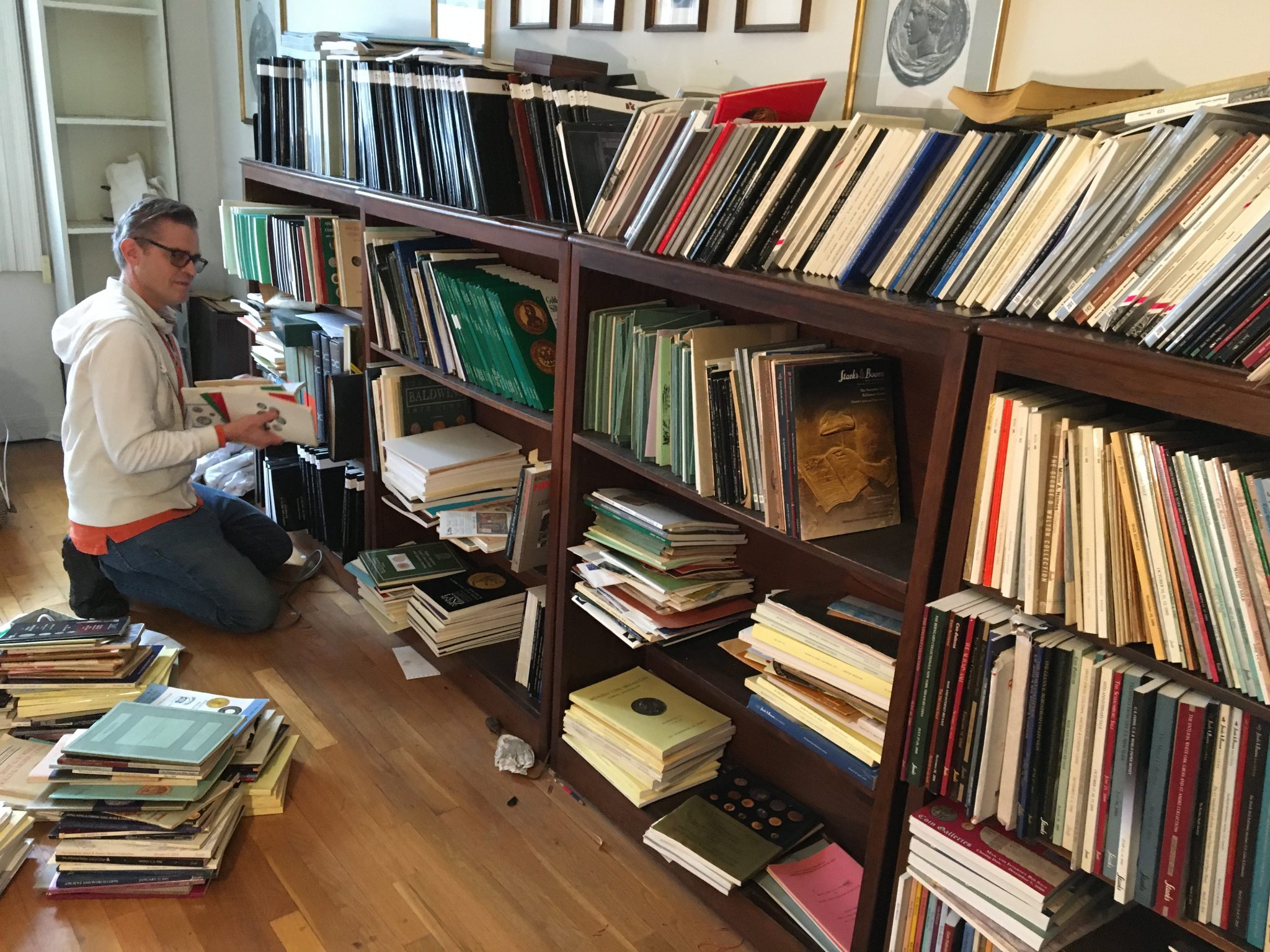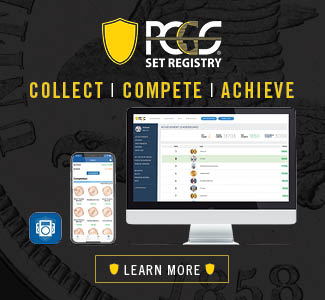Thanks to the efforts of American Numismatic Society (ANS) Life Fellow Dr. Ira Rezak—and with gratitude to Katharine Conway, executor of the Estate of Lottie Salton Revocable Trust—the ANS Library and Archives has acquired about 20 cubic feet of Mark Salton’s papers and annotated auction catalogs. This follows a bequest of $500,000 from his wife Lottie to help sustain a chair for Medieval and Renaissance numismatics. I would also like to thank ANS Fellow Normand Pepin for his help with the auction catalog portion of the accession.

Mark Salton, born Max Schlessinger in 1914, came from a family of bankers and numismatists in Germany. His father, Felix, opened a numismatic firm in Frankfurt in 1928, which was later moved to Berlin. As the Nazis gained power, and Jewish businesses came under increasing attack, Felix moved his family and his business to Amsterdam. After the Germans invaded Holland in 1940, the Saltons’ business facilities, numismatic inventory, and library were all seized. Mark went into hiding, eventually making his way to Belgium, then to France and Spain, and finally to neutral Portugal in July 1943. Learning that his parents had been killed at Auschwitz, Mark emigrated to the United States in 1946. Two years after this, he met another refugee, Lottie Aronstein, and the couple was married several months later. Mark attended New York University, earning a master’s degree in international banking. He established his own numismatic firm in the 1950s, specializing in ancient and foreign coins.
For more on Mark Salton, see Dr. Ira Rezak’s obituary for his friend in the Spring 2006 issue of ANS Magazine.

Even a cursory look at the papers now acquired by the ANS reveals fascinating documents. Perhaps most interesting and important are those relating to Salton’s efforts to recover the objects and books taken by the Nazis from his father’s business. These range in date from the 1940s to the time of Mark’s death in 2006. The earliest are written in the chilling bureaucratic style characteristic of regimes practicing lawful plunder, such as those requesting reports from the “liquidation trustee” assigned to Felix’s “Jewish enterprise.”

Also included is correspondence from the 1940s and ’50s with the Dutch dealer Jacques Schulman, a long letter from a later date containing Mark’s reminiscences about Hans Schulman, materials relating to an exhibit of the Salton’s collection of Renaissance and Baroque medals and plaquettes at Bowdoin College, documentation on the Saltons’ various donations to colleges and to the ANS, and materials relating to Mark’s scholarly research, including a copy of his master’s thesis, The Financing of the Italian South (1966).




